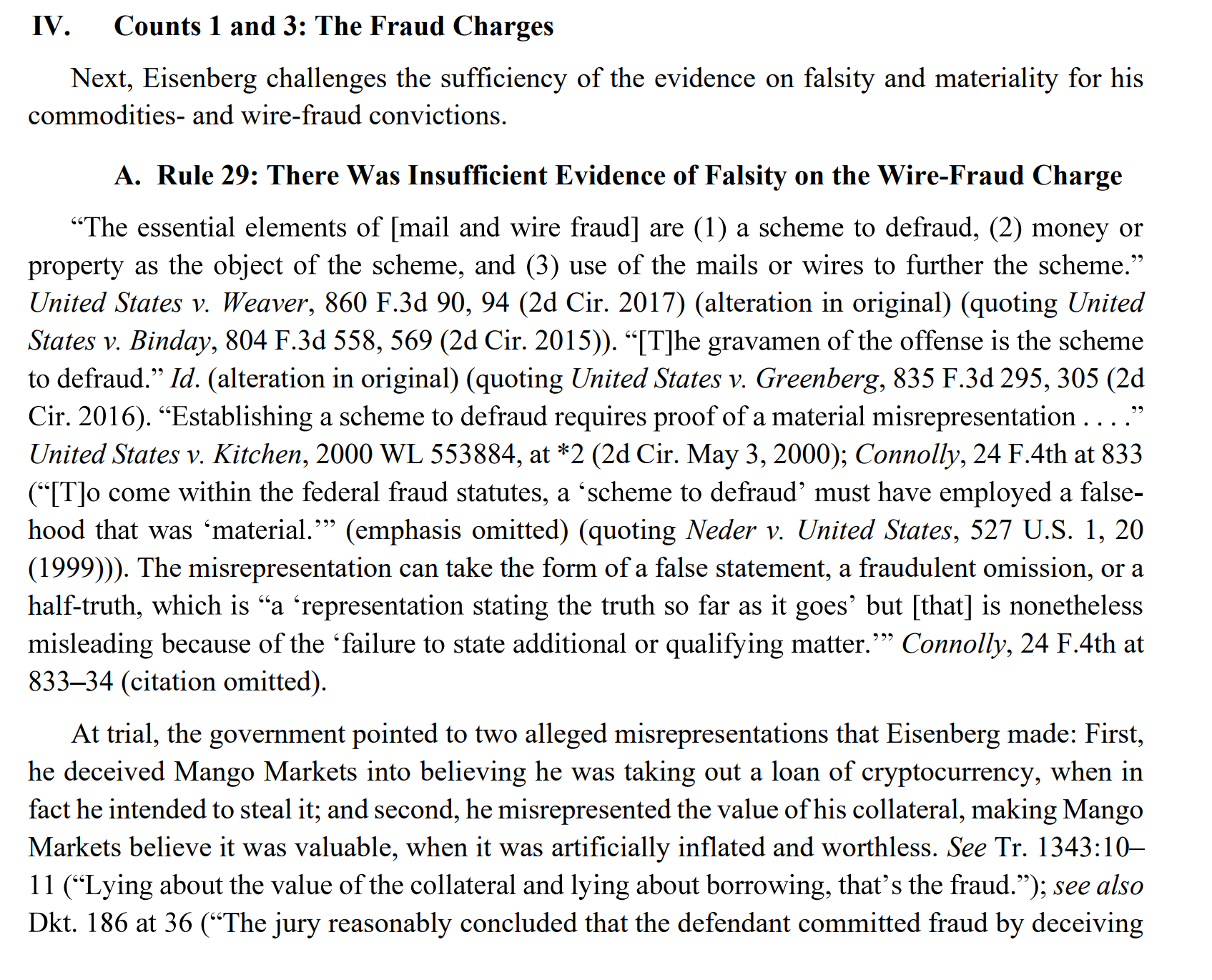Judge Overturns Fraud Convictions in Mango Markets Exploit: What Happened?
In a significant development in the cryptocurrency world, a US federal judge has overturned key fraud and manipulation convictions against Avraham Eisenberg, the individual at the center of the $110 million exploit of the decentralized exchange Mango Markets. This ruling raises critical questions about the legal interpretation of DeFi exploits and the boundaries of market manipulation.
On Friday, US District Judge Arun Subramanian ruled that the evidence presented at trial was insufficient to support the jury’s conclusion that Eisenberg made materially false representations to Mango Markets. This decision effectively acquits him of commodities fraud and market manipulation charges related to the Mango Markets incident, significantly weakening the government’s case.
Key Takeaways:
- Judge vacates fraud and market manipulation convictions against Avraham Eisenberg.
- The ruling centers on the nature of DeFi (Decentralized Finance) and permissionless code.
- Eisenberg still faces civil suits and a prison sentence on separate charges.
The Mango Markets Exploit Explained
Avraham Eisenberg, who describes himself as an “applied game theorist,” was initially convicted in 2024 for artificially inflating the price of Mango’s MNGO token by over 1,300% within minutes. He then used these inflated holdings as collateral to withdraw $110 million in cryptocurrency assets from the platform. The Justice Department argued that Eisenberg deceived Mango’s smart contract-based lending system.
The defense, however, argued that Eisenberg merely exploited poorly designed, permissionless code, without making any explicit false representations. This is where the crux of the legal debate lies – whether exploiting vulnerabilities in DeFi code constitutes fraud.
Why the Judge Sided with Eisenberg
Judge Subramanian agreed with the defense, stating that “Mango Markets was permissionless and automatic,” implying that the system couldn’t be deceived in a legally recognized sense. He concluded that “There was insufficient evidence of falsity,” thus siding with Eisenberg’s interpretation of DeFi mechanics. This means the judge believed that Eisenberg did not make any false statements or misrepresentations, but rather took advantage of the way the Mango Markets protocol was designed.
Here’s a breakdown of the judge’s reasoning:
- Permissionless Nature of DeFi: The judge emphasized that Mango Markets operated on a permissionless system, meaning anyone could interact with it without needing approval.
- Automatic Smart Contracts: The system relied on automated smart contracts, which execute code based on predefined rules.
- Lack of False Representations: The judge found no evidence that Eisenberg made false statements or misrepresentations to the Mango Markets system.

Venue Dispute
The judge also rejected the prosecution’s argument that the case should be heard in New York. Eisenberg was in Puerto Rico during the trades, and the court found that no significant activity related to the alleged crime occurred in New York. While the DOJ cited a Mango user in Poughkeepsie and a third-party vendor in Manhattan, the judge deemed these connections insufficient to establish proper venue.
What’s Next?
The US government now faces the decision of whether to refile the vacated charges. However, Eisenberg still faces civil suits from both the SEC (Securities and Exchange Commission) and the CFTC (Commodity Futures Trading Commission). These civil cases could potentially lead to financial penalties or other sanctions.
Eisenberg’s Other Legal Troubles
It’s important to note that while this ruling clears Eisenberg in the Mango Markets case, he remains incarcerated. In a separate case, Eisenberg was sentenced to nearly four years in prison on May 1 after pleading guilty to possessing child pornography. This charge stemmed from unrelated evidence discovered during his arrest for the Mango Markets exploit.
In December 2022, US federal law enforcement authorities arrested Eisenberg in Puerto Rico, initially charging him with commodities fraud and commodities manipulation. While a jury initially found Eisenberg guilty of these charges, the recent ruling has overturned those convictions.
Implications for DeFi Regulation
This case highlights the ongoing challenges in regulating the rapidly evolving world of DeFi. The judge’s decision underscores the difficulty in applying traditional fraud laws to novel situations involving smart contracts and permissionless systems. This ruling could potentially set a precedent for future cases involving DeFi exploits, potentially making it more difficult for prosecutors to pursue criminal charges against individuals who exploit vulnerabilities in DeFi protocols.
Here are some potential implications of this ruling:
- Increased Scrutiny of DeFi Protocols: DeFi developers and platforms may face increased scrutiny to ensure the security and robustness of their protocols.
- Calls for Clearer Regulatory Frameworks: This case may prompt calls for clearer regulatory frameworks for DeFi, providing guidance on what constitutes illegal activity in the space.
- Impact on Future DeFi Exploits: The ruling could influence how future DeFi exploits are prosecuted, potentially making it more challenging to bring criminal charges against exploiters.
The Mango Markets case and the overturning of Eisenberg’s convictions mark a pivotal moment in the ongoing debate about the legality and regulation of DeFi. The legal landscape surrounding DeFi remains uncertain, and this case highlights the need for clearer guidelines and regulations to protect users and promote innovation in this rapidly growing sector.